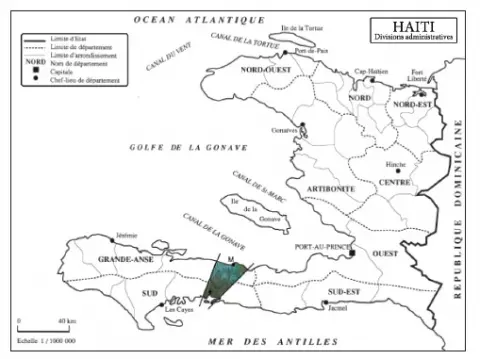
The Madian-Salagnac project: forty years of support for small-scale farming initiatives
Abstract: In the 1970s, the Madian-Salagnac project began forming multi-skilled facilitators to run outreach courses in agricultural techniques in rural southern Haiti. When the limitations of this approach became apparent, the project’s agronomists instead directly addressed groups of farmers (referred to by their social standing, as personnages or citoyens), building up a new pedagogical relationship based on observing the farmers’ practices and discussing their strategies with them.
Keywords: Haiti, Outreach systems, Training of farmers, Training of agronomists,Video-communication, Research and development, Fruit & vegetable crops, Cisterns and impluviums, Development strategies
Thematic: Agricultural Development
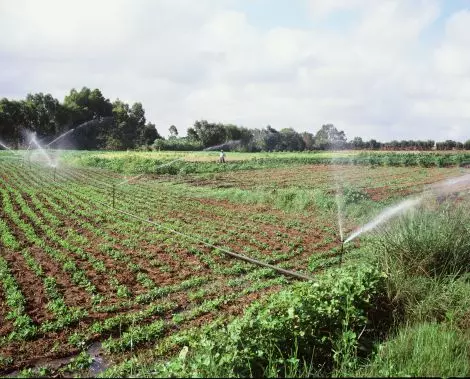
Successful peasant innovations: combining vegetable and staple cultivation
Outline:
- Le Plateau des Rochelois, des écosystèmes favorables aux cultures maraîchères et vivrières
- Les systèmes de culture préexistants au projet Salagnac
- Adoption de la culture du chou par les agriculteurs et transformation des itinéraires techniques proposés par les agronomes
- Recherche paysanne pour caler les nouvelles cultures dans un calendrier prenant en compte les conditions climatiques, les caractéristiques de sols et les contraintes de commercialisation
- Souci d’optimisation des fumures minérales dans des associations combinant cultures maraîchères et vivrières
- Conclusion
Thematic: Agricultural Development

The introduction of family cisterns, a key lever in transforming Haiti’s uplands
Abstract:
Observations made during training at the Madian-Salagnac center led to the construction of private cisterns and community impluviums (rainwater collectors) in Haiti. The introduction of cisterns in Salagnac (Nippes) enabled peasant families to increase their farming income, to focus on extra-agricultural activities (building work), to have access to good-quality water, to improve their health, and to give the women and children more time for other activities.
Keywords: Haiti, Drinking water, Cisterns, Agriculture, Building work, Vegetable crops, Staple crops
Thematic: Agricultural Development
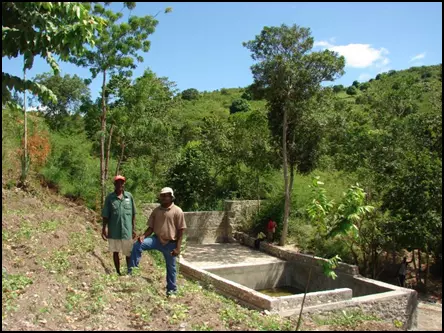
Technical and managerial innovations in Gros Morne: a legacy from Madian-Salagnac
Abstract: In the difficult context of Haiti’s mountains (the “mornes”), the sustainable agricultural development project at Gros Morne explored an original strategy for meeting the challenges posed by the decapitalization of agriculture and the deterioration of the environment. This project builds on the legacy of the Madian-Salagnac Center.
Keywords: Haiti, Gros Morne, Madian-Salagnac, Development project, Gully erosion,Managerial innovation, Art of doing things, New information technologies
Thematic: Agricultural Development and Innovation
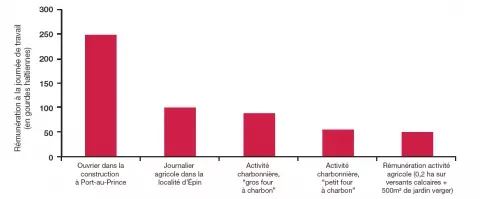
The path to pluriactivity: peasant family strategies to escape poverty and find supplementary sources of income
Abstract: n recent decades, the impoverishment of Haiti’s farmers has resulted—for the hardest hit among them, who can no longer make a living off the land—in dependence on non-agricultural sources of income. This paper draws on research work conducted in the Epin region, in Haiti’s Central Plateau. The agro-economic analysis carried out in this region sheds light on the context in which pluriactivity (making charcoal from trees bought standing, temporary jobs in Port-au-Prince and the region) has become the only way for the poorest families to survive.
Keywords: Haiti, Agriculture, Central plateau, Pluriactivity, Production system,System of activities
Thematic: Agricultural Development
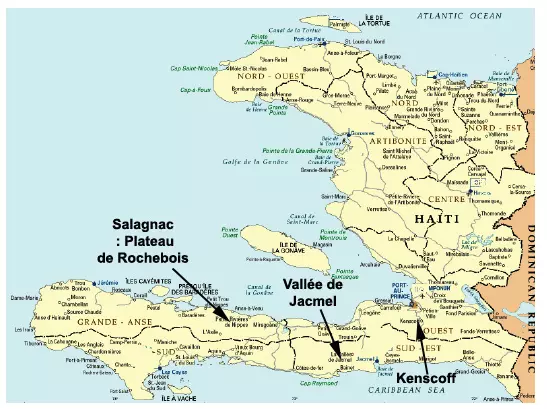
Socio-economic conditions of agro-ecological innovation for food security in the agroforestry gardens of Haiti
Abstract: Haiti’s agriculture faces two main challenges: improving its contribution to food security—notably by generating income to combat poverty—and furthering the country’s sustainable development. It is also subject to frequent cataclysmic events (earthquakes, hurricanes, etc.). This paper investigates the capacity of agro-forestry systems to intensify food production and supply urban markets.
Keywords: Haiti, Collective action, Agroforestry, Agro-ecology, Innovation, Food security
Thematic: Health and Environment
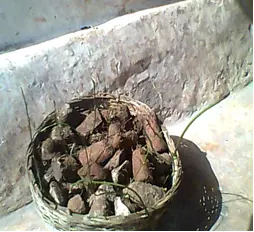
Case study: The minisett technique in Haiti, a joint innovation by researchers and producers, consistent with local conditions and agro-ecological realities
Thematic: Agricultural Development
Read the article (FR)
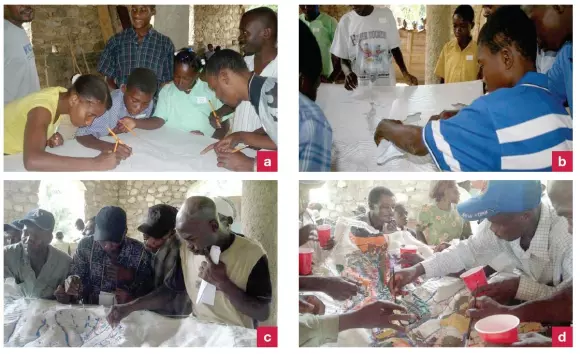
Use of participatory mapping to involve peasant families in the fight against erosion in Haiti
Abstract: In Haiti, due to the country’s rough terrain, a form of subsistence agriculture is practiced that generates widespread soil erosion. Constant demand for charcoal, meanwhile, drives the fragile rural population to cut down too many trees. The advanced state of erosion of the country’s watersheds causes considerable damage.
Keywords: Haiti, Participatory mapping, Three-dimensional model, Watershed, Land development, Conservation of water biomass and soil fertility
Thematic: Biodiversity and Natural Resources
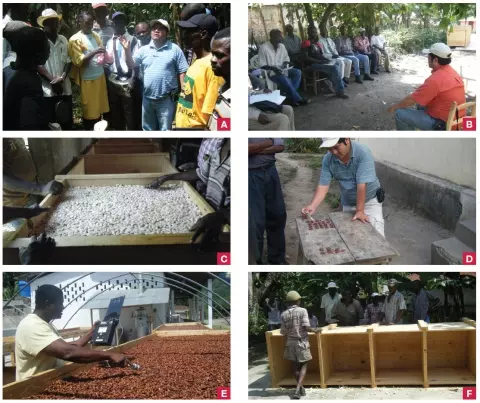
Haiti’s cocoa industry: an example of successful South-South exchange and North-South partnership
Abstract: Haitian cocoa consists mainly of the Criollo and Trinitario varieties, which are in strong demand around the world and are used in high-quality chocolate production. But the potential of Haiti’s cocoa has never been optimized: it has long been sold on the international market in the form of ordinary unfermented cocoa.
Keywords: Haiti, Cocoa, Fermentation, Niche market, Cocoa sector, South-South relations, North-South partnership, ICCO, Local cooperatives
Thematic: Agricultural Development
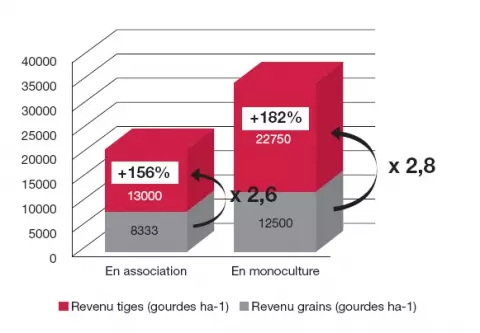
The promising future for sweet sorghum in Haiti
Keywords: Haïti, Sorgho sucré, Transformation, Rural, Brix,Innovation, Experimentations
Thematic: Biodiversity and Natural Resources
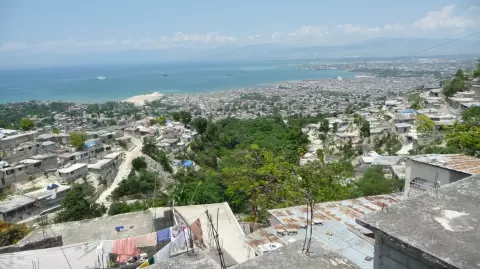
Public space at the heart of reconstruction: the example of Martissant in Port-au-Prince, Haiti
Abstract: In an anarchically-built district of Port-au-Prince—one that was the theater of serious violence in the 2000s and was partially destroyed by the earthquake on January 12, 2010—a French NGO (GRET) and a Haitian foundation (Fokal) have been pooling their efforts since 2007 to improve the area. Their activities have focused mainly on interventions on the public space and common goods, in particular water quality and environment.
Keywords: Waste, Sanitation, Haiti, Drinking water, Reconstruction, Land use plan,Access to basic services, Public space, Collective goods, Inclusive approach,Insecurity, Capacity-building, Martissant
Thematic: Environment and Access to Essential Services
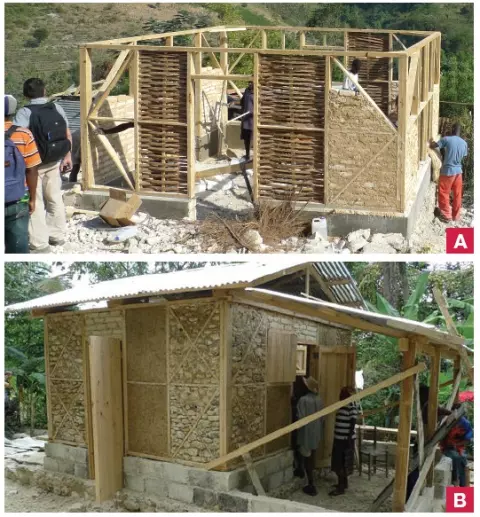
Harnessing traditional and scientific knowledge to reduce the vulnerability of the rural habitat to natural hazards in Haiti
Abstract: Following the earthquake that struck Haiti in 2010, observations have demonstrated the relevance of certain traditional building techniques that succeeded in limiting the occupants’ exposure to the risk of severe injury. Identifying and understanding the specificities of existing building structures and know-how provides a starting-point for improving building methods and reinforcing skills in order to reduce the long-term vulnerability of local communities.
Keywords: Rural, Haiti, Vernacular architecture, Reconstruction, Natural hazards,Construction cultures
Thematic: Cities and Urban services

An innovation in drinking water management in the poor districts of Port-au-Prince: experimentation, attempts at institutionalization, and crisis adaptation
Abstract: A hybrid drinking water service has been in place since 1995 to supply the poor districts of Port-au-Prince. It involves connecting a district mini-network—managed by a committee of local people—to the public network. The committee, to which the service is delegated, is bound by contract: it pays bills to CAMEP, the public water utility, and retails the water to the inhabitants of the district.
Keywords: Haiti, Drinking water, Poor districts, Community organization, Public service
Thematic: Poverty and Access to Essential Services

Case study: Planning methods for community health programs and drinking water access in rural Haiti
Keywords: Sanitation, Water, Haiti, Health, Local communities
Thematic: Health and Environment
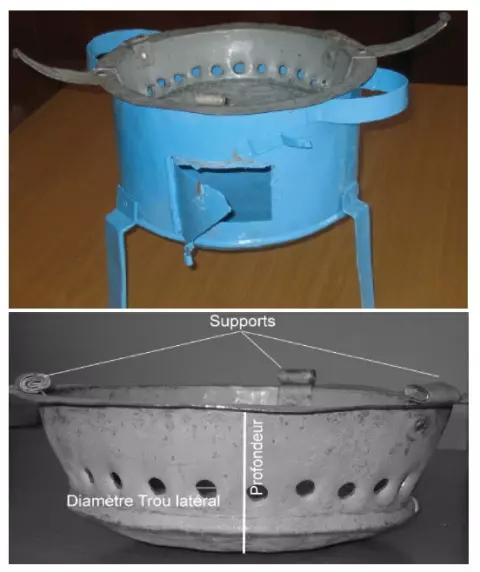
The Recho Mirak initiative: A look back at three decades promoting improved stoves in Haiti
Abstract: With the launch of the United Nations “Sustainable energy for all” initiative, “improved stoves” are enjoying a revival of interest from the international community. This paper seeks to contribute to the discussion, and to new energy access projects, by looking back over three highly instructive decades promoting improved stoves in Haiti. It analyzes the case of the Recho Mirak (Miracle Stove), a charcoal cooking stove developed in the early 1980s, distinguishing between the different components of the initiative: the technical innovation, the marketing strategy, and the production system.
Keywords: Haiti, Energy, Cooking, Improved stoves, Improved cooking stoves,Crafts, Quality control certification, Counterfeiting, Piracy
Thematic: Societal issues and Governance
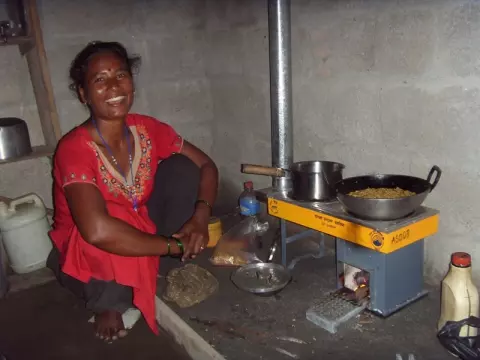
Prakti Design: the challenge of clean Combustion for the poor
Abstract: Three billion people rely on open fire or polluting and non-efficient biomass stoves for cooking and heating. These households, mostly women and young children, are exposed to harmful indoor air pollution. This is the fourth mortality cause in the world, and second cause of death in developing countries, below aids but above well-known ailments such as malaria or tuberculosis.
Keywords: India, Haiti, Indoor air pollution, Clean stove, Fuel-efficient, Biomass cookstove, Base of the pyramid, Social entrepreneurship
Thematic: Poverty and Access to Essential Services
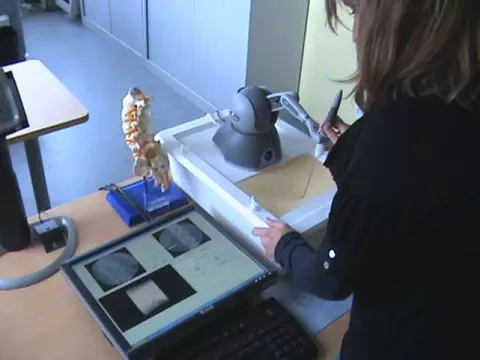
Computer-assisted orthopedic surgery training: the case of the intelligent tutoring system TELEOS
Abstract: The purpose of the research presented in this paper is to design a computer-assisted human learning environment. The particular case under study is the intelligent tutoring system TELEOS (Technology Enhanced Learning Environment for Orthopaedic Surgery), which supports the learning of percutaneous orthopedic surgery, and specifically, vertebroplasty and iliosacral screw fixation.
Keywords: Haiti, Intelligent tutoring systems, Computer-assisted human learning environment, Computer-assisted learning, Simulation-oriented learning systems,Artificial intelligence in education
Thematic: Health and Environment
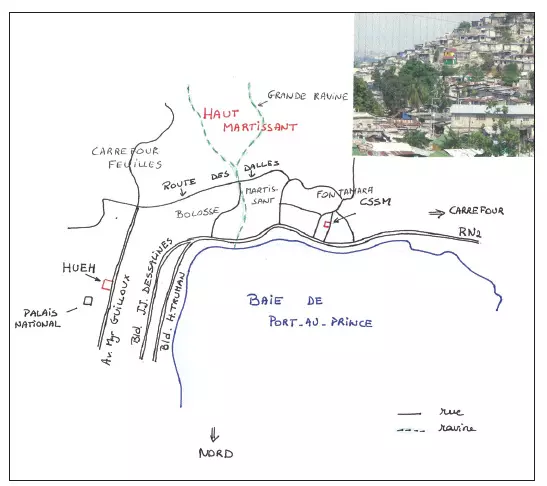
Access to healthcare and the fight against poverty: an example of a solidarity fund in Port-au-Prince
Abstract: Now that universal health care is recognized as a priority, particular attention is being paid to different types of welfare systems. This paper presents a solidarity fund initiative set up in Haut Martissant (Port-au-Prince). The system was put in place thanks to a partnership between ATD Quart Monde and the Service Œcuménique d’Entraide.
Keywords: Haiti, Access to health care, Poverty, Universal health care, Equity fund,Community-based health insurance
Thematic: Health and Environment
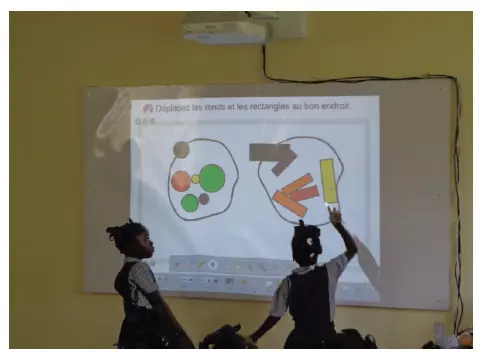
Haiti’s digital education experiment: interactive whiteboards in the classroom
Abstract: In a context of strong demographic pressure, under-investment, issues surrounding the choice of teaching language, and a lack of qualified staff, Haiti’s education system struggles to meet the demand for schooling. To address this situation, the NGO Haïti Futur launched a digital education program in August 2010, centering on the use of interactive whiteboards (IWBs), the creation of interactive digital lessons for the first 3 years of primary school, and pedagogical training for staff to ensure that they were equal to the task.
Keywords: Haiti, Education, Digital, Interactive whiteboard, IWB, Training, Sankoré,Haïti Futur
Thematic: Access to Essential Services

